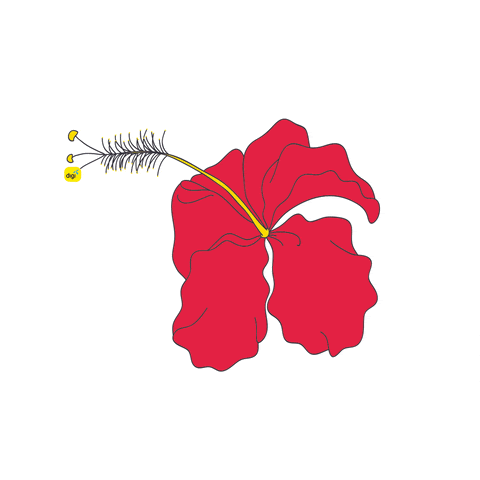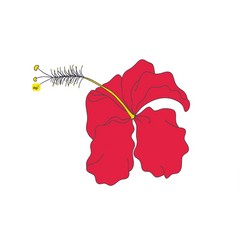
WHY DO WE LOVE HIBISCUS? HERE'S WHY...
Share

Reasons to love hibiscus
1. IT REDUCES RISK OF SICKNESS AND DISEASE
This deliciously tart flower is rich in powerful antioxidants: antioxidants help to combat oxidative stress by interacting with free radicals in a way that makes them stable (hence preventing tissue and cell damage). Oxidative stress is associated with many ailments and diseases including diabetes, heart disease, atherosclerosis, Alzheimer's disease, Parkinson's disease, glaucoma, age-related macular degeneration, and cancer. Free radicals aren't entirely avoidable, but risk of harm can be reduced by the intake of antioxidants. Polyphenols are a well-known antioxidant class that combats free radical damage. Hibiscus is rich in the polyphenol anthocyanins, which has shown to have powerful anti-cancer effects. Also, several test tube studies suggest hibiscus extract inhibits cancer cell growth in various types of cancer. Hibiscus is also high in vitamin C and research suggests it can fight bacteria.
1. IT REDUCES RISK OF SICKNESS AND DISEASE
This deliciously tart flower is rich in powerful antioxidants: antioxidants help to combat oxidative stress by interacting with free radicals in a way that makes them stable (hence preventing tissue and cell damage). Oxidative stress is associated with many ailments and diseases including diabetes, heart disease, atherosclerosis, Alzheimer's disease, Parkinson's disease, glaucoma, age-related macular degeneration, and cancer. Free radicals aren't entirely avoidable, but risk of harm can be reduced by the intake of antioxidants. Polyphenols are a well-known antioxidant class that combats free radical damage. Hibiscus is rich in the polyphenol anthocyanins, which has shown to have powerful anti-cancer effects. Also, several test tube studies suggest hibiscus extract inhibits cancer cell growth in various types of cancer. Hibiscus is also high in vitamin C and research suggests it can fight bacteria.
2. IT COMBATS FAT ACCUMULATION
In one study, researchers gave participants either hibiscus or a placebo for 12 weeks: participants who took hibiscus experienced a reduction in body weight, body fat, body mass index, and hip to waist ratio. Other animal studies have found similar findings. Other studies suggest hibiscus supports liver health, reduces fat in the liver, and reduces fat in the blood.
3. IT'S DELICIOUS
Hibiscus is tangy and bright and goes well with so many herbs and fruits!
Check out some of our favorite hibiscus products!
In one study, researchers gave participants either hibiscus or a placebo for 12 weeks: participants who took hibiscus experienced a reduction in body weight, body fat, body mass index, and hip to waist ratio. Other animal studies have found similar findings. Other studies suggest hibiscus supports liver health, reduces fat in the liver, and reduces fat in the blood.
3. IT'S DELICIOUS
Hibiscus is tangy and bright and goes well with so many herbs and fruits!
Check out some of our favorite hibiscus products!
$8.95
Hibiscus, lemongrass, garlic, basil, lime juice powder, lavender. This tangy and herbaceous blend is delicious on fish.
Hibiscus, lemongrass, garlic, basil, lime juice powder, lavender. This tangy and herbaceous blend is delicious on fish.
Link, Rachael. “8 Benefits of Hibiscus Tea.” Healthline, Healthline Media, 25 Nov. 2017, www.healthline.com/nutrition/
Barhé, T. Andzi, and G.R. Feuya Tchouya. “Comparative Study of the Anti-Oxidant Activity of the Total Polyphenols Extracted from Hibiscus Sabdariffa L., Glycine Max L. Merr., Yellow Tea and Red Wine through Reaction with DPPH Free Radicals.” Arabian Journal of Chemistry, Elsevier, 18 Dec. 2014, www.sciencedirect.com/science/

